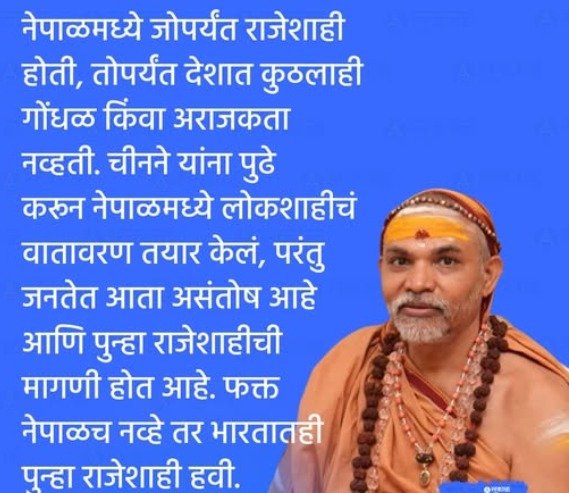
Violence in Nepal and Demand for Monarchy in India: Swami Avimukteshwaranand's Statement
The recent violent protests in Nepal and the agitations of the young generation (Gen Z) there have caught the attention of the entire South Asia. These protests were initially triggered by a ban on social media, but later transformed into widespread anger against corruption and political leadership. Against this backdrop, Swami Avimukteshwaranand has commented on the situation in Nepal and demanded the implementation of monarchy in India as well. He says, "A system under the influence of another religion is not right in a country with a Hindu majority." With this statement, he has raised questions about the political and social system in India.
Background of the Protest in Nepal
The protests in Nepal initially started against the government's ban on 26 social media platforms. The government had given these platforms a seven-day deadline to register, but the ban was imposed when they did not comply. This decision was strongly opposed and especially the youth took to the streets. Violence broke out during the protests, in which more than 30 people were killed and hundreds were injured. In Kathmandu, protesters set fire to the Parliament, the Supreme Court and other government buildings. Also, the residence of former Prime Minister K. P. Sharma Oli was attacked, which forced him to resign.
In this movement in Nepal, youth raised their voice against corruption, nepotism and social injustice. The protesters have demanded the appointment of former Chief Justice Sushila Karki as the interim Prime Minister. The Nepalese army has imposed curfew in Kathmandu and other areas, and efforts are underway to bring the situation under control. India has also advised its citizens to avoid traveling there in the wake of this instability in Nepal.
Statement by Swami Avimukteshwaranand
Reacting to these developments in Nepal, Swami Avimukteshwaranand commented on the political system in India. He said, "The anger of the youth in Nepal is against corruption and wrong policies. Even in India, despite the Hindu majority, the system is functioning under the influence of another religion. This does not protect the interests of the common people." He further said that if the monarchy is implemented in India, social and religious values ??can be protected.
Swami Avimukteshwaranand, while supporting the movement in Nepal, said that the demands of the young generation and their anger are right. According to him, the demand for the restoration of the monarchy in Nepal is related to the cultural and religious identity of the people there. He has also appealed to the youth of India to take inspiration from this and think about the system in their country.
Impact on India-Nepal relations
This instability in Nepal is also likely to affect India-Nepal relations. India has warned its citizens willing to travel there to be careful after the violence in Nepal. Also, additional flights have been started between Delhi and Kathmandu, so that Indians stranded there can be brought back safely. The death of a woman from Uttar Pradesh in the violence in Nepal has also led to growing public anger in India.
Demand for monarchy in India: Reality or emotional appeal?
Swami Avimukteshwaranand's demand for the implementation of monarchy in India has raised many questions. India is a democratic country, and its constitution has given equal rights and freedom to all citizens. In such a situation, a debate has started on whether the demand for monarchy is just an emotional appeal or there are solid reasons behind it. Some are of the opinion that Swamiji's statement is an attempt to awaken religious and cultural feelings among the youth in the wake of the agitation in Nepal. While others consider it impractical.
Situation in Nepal and India's role
The agitation in Nepal has raised questions about the political stability of that country. India has also been closely monitoring the political developments in Nepal in the past. In the current situation, India has shown its readiness to cooperate with Nepal to resolve this issue peacefully. Also, vigilance has been increased in the border areas so that the violence does not affect India.
The recent violent protests in Nepal and the agitations of the young generation (Gen Z) there have caught the attention of the entire South Asia. These protests were initially triggered by a ban on social media, but later transformed into widespread anger against corruption and political leadership. Against this backdrop, Swami Avimukteshwaranand has commented on the situation in Nepal and demanded the implementation of monarchy in India as well. He says, "A system under the influence of another religion is not right in a country with a Hindu majority." With this statement, he has raised questions about the political and social system in India.
Background of the Protest in Nepal
The protests in Nepal initially started against the government's ban on 26 social media platforms. The government had given these platforms a seven-day deadline to register, but the ban was imposed when they did not comply. This decision was strongly opposed and especially the youth took to the streets. Violence broke out during the protests, in which more than 30 people were killed and hundreds were injured. In Kathmandu, protesters set fire to the Parliament, the Supreme Court and other government buildings. Also, the residence of former Prime Minister K. P. Sharma Oli was attacked, which forced him to resign.
In this movement in Nepal, youth raised their voice against corruption, nepotism and social injustice. The protesters have demanded the appointment of former Chief Justice Sushila Karki as the interim Prime Minister. The Nepalese army has imposed curfew in Kathmandu and other areas, and efforts are underway to bring the situation under control. India has also advised its citizens to avoid traveling there in the wake of this instability in Nepal.
Statement by Swami Avimukteshwaranand
Reacting to these developments in Nepal, Swami Avimukteshwaranand commented on the political system in India. He said, "The anger of the youth in Nepal is against corruption and wrong policies. Even in India, despite the Hindu majority, the system is functioning under the influence of another religion. This does not protect the interests of the common people." He further said that if the monarchy is implemented in India, social and religious values ??can be protected.
Swami Avimukteshwaranand, while supporting the movement in Nepal, said that the demands of the young generation and their anger are right. According to him, the demand for the restoration of the monarchy in Nepal is related to the cultural and religious identity of the people there. He has also appealed to the youth of India to take inspiration from this and think about the system in their country.
Impact on India-Nepal relations
This instability in Nepal is also likely to affect India-Nepal relations. India has warned its citizens willing to travel there to be careful after the violence in Nepal. Also, additional flights have been started between Delhi and Kathmandu, so that Indians stranded there can be brought back safely. The death of a woman from Uttar Pradesh in the violence in Nepal has also led to growing public anger in India.
Demand for monarchy in India: Reality or emotional appeal?
Swami Avimukteshwaranand's demand for the implementation of monarchy in India has raised many questions. India is a democratic country, and its constitution has given equal rights and freedom to all citizens. In such a situation, a debate has started on whether the demand for monarchy is just an emotional appeal or there are solid reasons behind it. Some are of the opinion that Swamiji's statement is an attempt to awaken religious and cultural feelings among the youth in the wake of the agitation in Nepal. While others consider it impractical.
Situation in Nepal and India's role
The agitation in Nepal has raised questions about the political stability of that country. India has also been closely monitoring the political developments in Nepal in the past. In the current situation, India has shown its readiness to cooperate with Nepal to resolve this issue peacefully. Also, vigilance has been increased in the border areas so that the violence does not affect India.
Background of the Protest in Nepal
The protests in Nepal initially started against the government's ban on 26 social media platforms. The government had given these platforms a seven-day deadline to register, but the ban was imposed when they did not comply. This decision was strongly opposed and especially the youth took to the streets. Violence broke out during the protests, in which more than 30 people were killed and hundreds were injured. In Kathmandu, protesters set fire to the Parliament, the Supreme Court and other government buildings. Also, the residence of former Prime Minister K. P. Sharma Oli was attacked, which forced him to resign.
In this movement in Nepal, youth raised their voice against corruption, nepotism and social injustice. The protesters have demanded the appointment of former Chief Justice Sushila Karki as the interim Prime Minister. The Nepalese army has imposed curfew in Kathmandu and other areas, and efforts are underway to bring the situation under control. India has also advised its citizens to avoid traveling there in the wake of this instability in Nepal.
Statement by Swami Avimukteshwaranand
Reacting to these developments in Nepal, Swami Avimukteshwaranand commented on the political system in India. He said, "The anger of the youth in Nepal is against corruption and wrong policies. Even in India, despite the Hindu majority, the system is functioning under the influence of another religion. This does not protect the interests of the common people." He further said that if the monarchy is implemented in India, social and religious values ??can be protected.
Swami Avimukteshwaranand, while supporting the movement in Nepal, said that the demands of the young generation and their anger are right. According to him, the demand for the restoration of the monarchy in Nepal is related to the cultural and religious identity of the people there. He has also appealed to the youth of India to take inspiration from this and think about the system in their country.
Impact on India-Nepal relations
This instability in Nepal is also likely to affect India-Nepal relations. India has warned its citizens willing to travel there to be careful after the violence in Nepal. Also, additional flights have been started between Delhi and Kathmandu, so that Indians stranded there can be brought back safely. The death of a woman from Uttar Pradesh in the violence in Nepal has also led to growing public anger in India.
Demand for monarchy in India: Reality or emotional appeal?
Swami Avimukteshwaranand's demand for the implementation of monarchy in India has raised many questions. India is a democratic country, and its constitution has given equal rights and freedom to all citizens. In such a situation, a debate has started on whether the demand for monarchy is just an emotional appeal or there are solid reasons behind it. Some are of the opinion that Swamiji's statement is an attempt to awaken religious and cultural feelings among the youth in the wake of the agitation in Nepal. While others consider it impractical.
Situation in Nepal and India's role
The agitation in Nepal has raised questions about the political stability of that country. India has also been closely monitoring the political developments in Nepal in the past. In the current situation, India has shown its readiness to cooperate with Nepal to resolve this issue peacefully. Also, vigilance has been increased in the border areas so that the violence does not affect India.

.jpg)






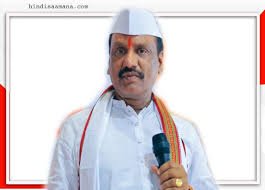


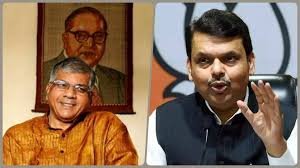
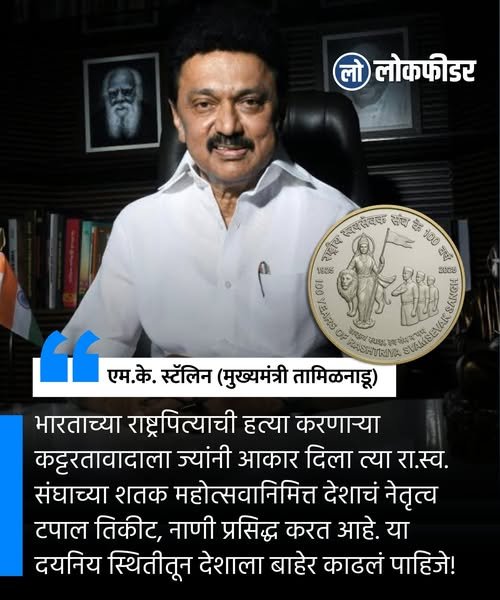
.jpg)
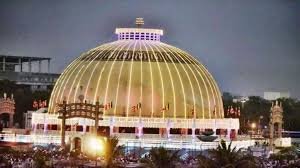
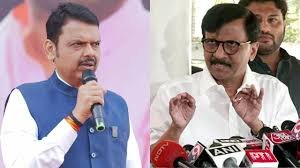
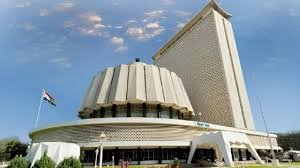
.png)
